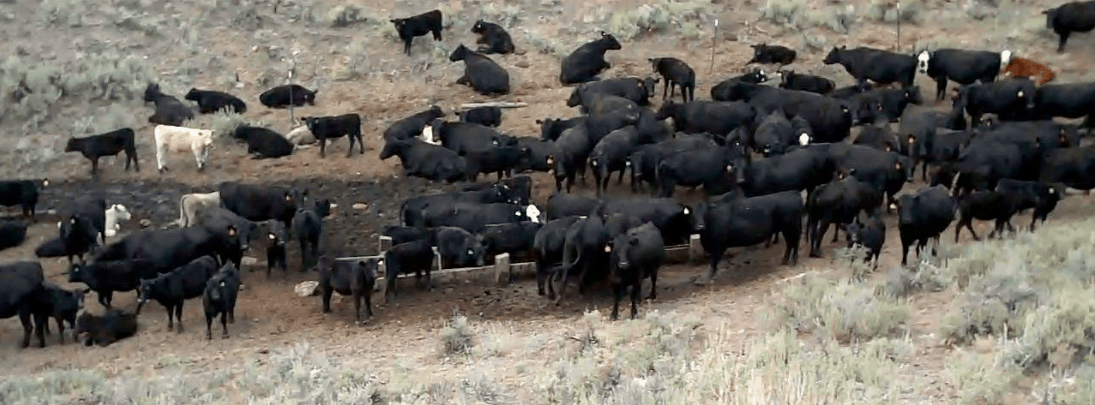
People may want to view the following press release from Public Employees for Environmental Responsibility (PEER) in context of the so-called “Grazing Improvement Act” rider, which was attached to the $585 Billion Defense Bill. In Montana, this public lands grazing rider was proudly touted by Sen Tester and Rep Daises, while it wasn’t publicly opposed – or even mentioned at all – by the Montana Wilderness Association, The Wilderness Society or National Wildlife Federation.
According to public lands grazing policy experts, the so-called “Grazing Improvement Act” rider now means the automatic renewal of expiring livestock grazing permits on public lands, even if these permits are causing the decline of greater sage grouse, desert tortoise or other sensitive wildlife species, or even if public lands grazing is ruining riparian areas and watersheds.
These public lands grazing permits also must be automatically renewed even before the completion of any NEPA environmental analysis or public input process. So the Cliven Bundy’s of the world – and other welfare-ranchers who pay pennies on the dollar to graze their private livestock on our public lands – won big with this part of the public lands rider package, while native wildlife like elk, deer and bighorn sheep and countless other native wildlife species all lost big time. This public lands rider alone impacts approximately 200 million acres of public lands in the Western US.
For Immediate Release: Dec 22, 2014
Contact: Kirsten Stade (202) 265-7337
BLM DUMBING DOWN REPORTS ON LIVESTOCK RANGE CONDITIONS
Complaint Demands Restoration of Data Quantifying and Qualifying Grazing Effects
Washington, DC — The U.S. Bureau of Land Management has removed key data from a statutorily mandated report measuring how well vast federal rangelands are protected from damaging overgrazing, according to an administrative complaint filed today by Public Employees for Environmental Responsibility (PEER). The group is pressing BLM to restore data contained in previous annual reports tracking whether overgrazing or other factors are degrading the condition of 150 million acres of federal rangelands across a 13-state area covering most of the West.
The BLM’s 2013 Rangeland Inventory, Monitoring, and Evaluation (RIME) report, released on November 4, 2014, differs substantially from previous reports by removing the following data:
- The number and land area of grazing allotments meeting and failing rangeland health standards;
- Information distinguishing between failures of the standards due to livestock and other causes; and
- Whether land conditions are improving or declining or whether BLM is taking any management steps to restore degraded rangeland.
The new report is a significant departure from prior RIME reports which had been showing a disturbing trend of more and more lands failing to meet range health standards for water, vegetation, soils and the ability to support wildlife principally due to commercial livestock operations. In the last decade as more land has been assessed, estimates of damaged lands have doubled across the 20,000 BLM grazing allotments. Crippling drought in much of the Sagebrush West is undoubtedly further aggravating conditions.
“BLM is obscuring the very information Congress and the public need to gauge the success or failure of rangeland management,” said PEER Advocacy Director Kirsten Stade, calling out the new report as “RIME without reason.” “BLM cannot escape accountability by editing its books to remove all the modifiers.”
PEER today filed a complaint under the Data Quality Act which requires federal reports, especially those statistical in nature, to be complete, unbiased and of the highest accuracy and utility. The complaint demands that BLM retract the 2013 RIME report and reissue it with the full scope of data. Under its rules BLM has 60 days to comply or to reject the complaint, in which case PEER can appeal that denial.
“By law, BLM cannot seek to reduce the sum total of human knowledge,” added Stade, noting that BLM is playing statistical games to mask deteriorating range conditions, which is addressed in another part of the PEER complaint. “Last year, BLM claimed that it could not track grazing impacts due, incredibly enough, to insufficient data. This year it is trying to bury the data it claimed not to possess.”
To validate the actual state of range health, PEER has assembled a grazing website featuring an interactive map combining BLM range health data obtained through the Freedom of Information Act with high resolution satellite imagery to compare visible on-the-ground conditions versus BLM claims.
###
Read the PEER Data Quality Act complaint
View the offending table in the 2012 versus 2013 RIME report
Visit the PEER Grazing Reform website
See an example of BLM weaseling range data
Revisit BLM claim that it lacks sufficient data to track grazing impacts
Examine a recent example of a successful PEER Data Quality Act challenge
There’s so much empty grazing land in Argentina without the need of deforestation, overgrazing or feedlots, international organizations and governments should get together to manage the needs of our planet.